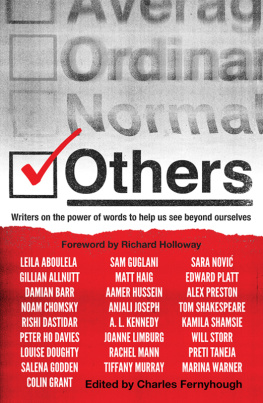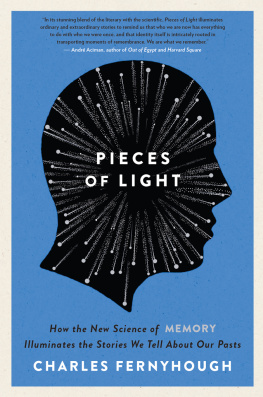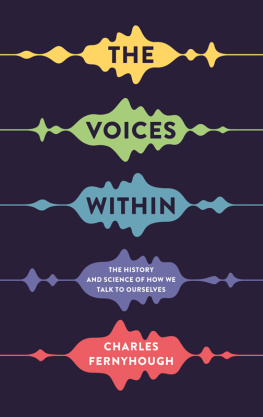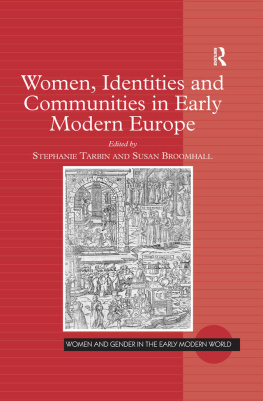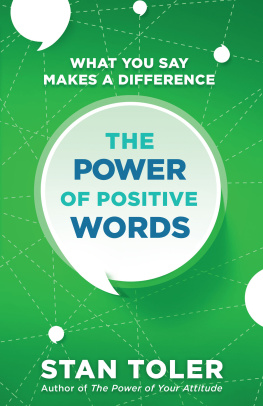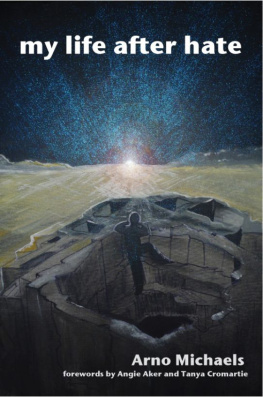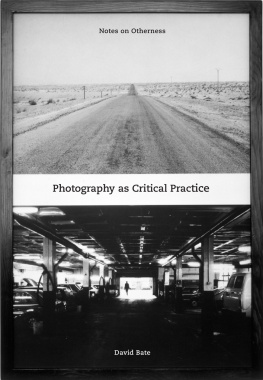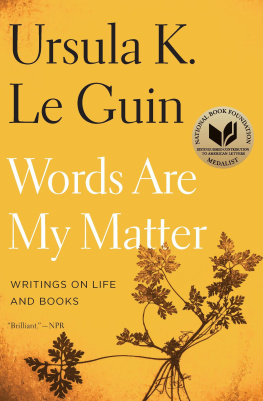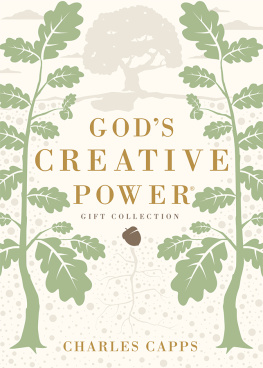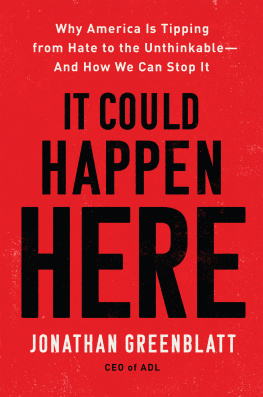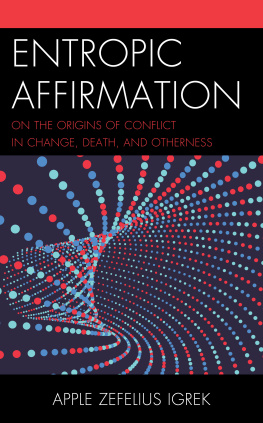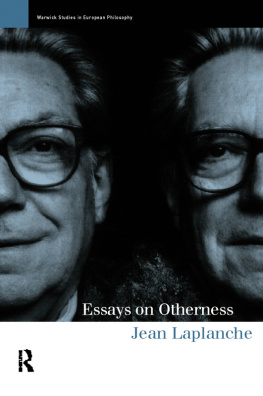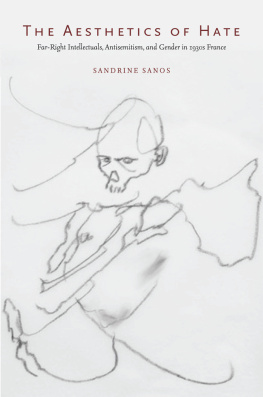
WITH SPECIAL THANKS TO
NINJA THEORY
BY THE SAME AUTHOR
The Auctioneer
The Baby in the Mirror
Pieces of Light
A Box of Birds
The Voices Within
To the others that we are
Foreword
Richard Holloway
Great novelists dont tell, they show. By revealing the complexity of the human condition, they get their readers to understand what makes their characters behave the way they do, even if they dont like the result. It is no surprise that it was a novelist that got the process into two words: Only connect . They were used by E. M. Forster as the epigraph to his novel, Howards End , about the sexual hypocrisy of Edwardian England. Its about the way people fail to connect their own accidental good fortune with the accidental misfortune of others. But it goes even deeper than that.
There is a doctrine called predestination , found in both Christianity and Islam, that makes the same point. Its as if God were a novelist plotting a story. Calvin puts it like this: By predestination we mean the eternal decree of God, by which he determined with himself whatever he wished to happen with regard to every man. All are not created on equal terms, but some are preordained to eternal life, others to eternal damnation
In our time predestination has been taken over by geneticists who tell us that our future lies not in our stars but in our DNA, and the plot line was written for us long before we were born. Again, it is the writer we must listen to. Only connect. Try to understand what makes people act the way they do. Reach back into their story and the factors that determined them. Be dismayed at the result, if you must, but try to understand the forces that formed them.
And understand yourself in the same way. Dont shrink from the truth of what you have become. The past was never under your control. The future might be, but only if you bring them together. If we brought that compassionate realism to the way we judge ourselves and others we might take what Edward St Aubyn calls the tramlines of the past into a new direction in the future.
That, I believe, is what this rich tapestry of a book is trying to get us to achieve. Only connect
Contents
Preti Taneja |
Rishi Dastidar |
Gillian Allnutt |
Colin Grant |
Will Storr |
Edward Platt |
Gillian Allnutt |
Peter Ho Davies |
Damian Barr |
Sam Guglani |
Sara Novi |
Joanne Limburg |
Salena Godden |
Tom Shakespeare |
Rachel Mann |
Matt Haig |
Alex Preston |
Aamer Hussein |
Anjali Joseph |
Leila Aboulela |
Tiffany Murray |
A. L. Kennedy |
Louise Doughty |
Kamila Shamsie |
Marina Warner |
Gillian Allnutt |
Noam Chomsky |
Introduction
Charles Fernyhough
Something extraordinary happens around a quarter of the way through Colson Whiteheads 2016 Pulitzer Prize-winning novel, The Underground Railroad . We are on a cotton plantation in antebellum Georgia, following the struggles of the slave girl Cora to maintain some semblance of human dignity in the face of an inconceivably brutal regime. Inconceivable, and yet the author gives us the tools to imagine it. We are taken into Coras world as she works and fights, is raped and cheated and beaten. We are agonised by a brutality that seems to defy the logic of any human heart or brain. Cora and her fellows are not just people reduced to chattels; they are objects of a violence designed to assuage an empty soul, to beat out an identity by negating someone elses. We look out on the world that Cora sees: the brittle pleasures of an old slaves birthday celebrations; the plotting of what seems like an impossible, suicidal escape; the chasing of the mundane joys that remind her of what seems a risible truth: that she is still a human being.
And then the author does this thing. All of a sudden, with nothing more than a chapter break and the signpost of the title Ridgeway, we are in someone elses point of view. Ridgeway, the six-and-a-half-foot-tall son of a blacksmith, who seeks an alternative to the limited destiny available to him and finds it in rounding up runaway slaves. To make up for his own lack of purpose, he drags absconders back to plantations for certain torture and likely death. We dont just get an objective account of the making of a monster; we see it from the monsters perspective. We learn what it feels like to thrill to the pursuit of a defenceless slave: the cuts and bruises in the darkness, the baiting of New York City abolitionists, the verbal jousting in and outside the courtroom. In the chase his blood sang and glowed: the author doesnt flinch from showing us the workings of Ridgeways deformed heart.
Theres nothing unusual about switching point of view in a novel: it is a restraint-demanding technical feat that exposes many novices. At one level, Ridgeways intervention is just a moment in a brilliant book that advertises fictions power to make us morally complicit. Simply by attending to the details of Ridgeways circumstances, the author gives the slave-catcher the humanity he denies to his kidnapped, abused, brutalised black quarry. I have no wish to increase my sympathy for slave-catchers or evil-doers of any kind, but the novel does it for me anyway. It is one of the demands that literature makes of us: you play this game, youre going to be in with the bad guys for at least some of the time. My first thought was that Whitehead had no right to be able to do this. How is it possible for a black American novelist to put us into the mind of a white man who catches runaway slaves for money? It was a trick, an act of conjury, a sleight of hand that seemed deliciously indecent. It asked me what a good book always does: where do my sympathies lie?
That moment in The Underground Railroad got me pondering this trick. I thought about times when I had been similarly morally upended by being placed in the shoes of people who do not think, feel or act like I do. In Lolita , Nabokov had put me into the mind of a paedophile, and challenged me to my core by showing me that the paedophile was a human being. Dostoevsky had done it with the murderer Raskolnikov in Crime and Punishment . It wasnt just about showing us the bad guys point of view; it was about making damn sure we inhabited it. It worked for the good people too. I thought about all those times when brilliant writing has opened other worlds to me, when I have felt a little more understanding of a predicament for which my sympathy was untutored and underequipped, and thus not up to the task. This is what literature does. Novels are moral workouts precisely because they are no more likely if they are halfway decent to caricature the heinous than they are to cartoon-sketch the good.
And yet it is miraculous. Im far from the first person to marvel at what Virginia Woolf called the immense persuasiveness of a mind which has completely mastered its perspective. Every author strives for it; rookies make the mistake of not realising that a characters point of view has to be earned. When done well, literature puts us into suits of mental clothes that we usually dont try on. I call it a miracle, and yet it is a writers bread and butter, a staple of what authors do. Toni Morrison puts it well in her recent essay collection, The Origin of Others . Narrative fiction, she writes, provides a controlled wilderness, an opportunity to be and to become the Other. The stranger. With sympathy, clarity, and the risk of self-examination. As a novelist, my technical curiosity makes me ask how this trick is even possible. As a reader, I want more of that exhilarating leap into another worldview.
Next page
